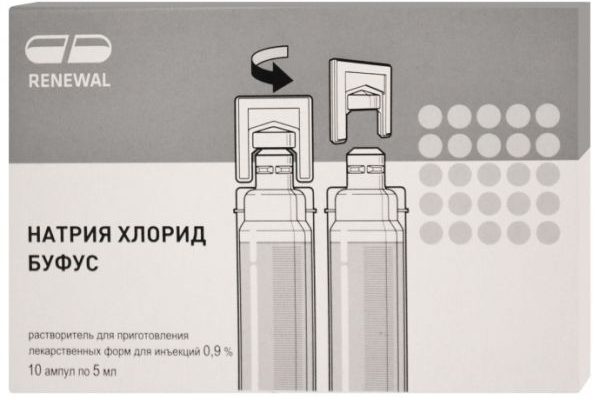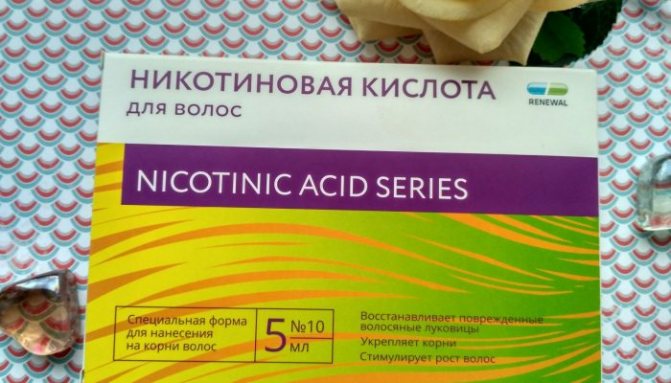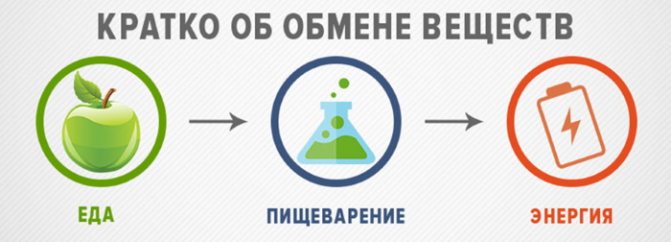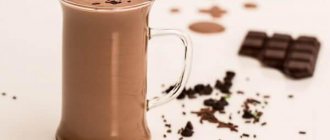The benefits of nicotinic acid (vitamin B3) for women are obvious. It is taken for medicinal, preventive and cosmetic purposes. And the substance is effective in all areas. The main thing is to follow the recommended dosage and not neglect the consultations of doctors. We will learn more about the properties and use of the substance in the article.
Now Foods, Niacinamide, 500 mg, 100 Capsules
from 438 ₽
More details
Need for nicotinic acid
The daily requirement of niacin depends on age:
- 12-18 years: 18 mg;
- over 18 years: 20 mg;
Pregnant women are prescribed 20-25 mg per day.
Everyone needs nicotinic acid in moderate doses. An urgent need for a substance manifests itself in the following cases:
- Chronic state of stress.
- Pregnancy and breastfeeding (in certain cases).
- Hyperthyroidism.
- Oncological diseases.
- Chronic infections.
- Fever.
- Cirrhosis.
- Hepatitis.
Interesting to know! Women need nicotine not only internally, but also externally - for cosmetic purposes. The drug is purchased in ampoules and is used for the beauty of the dermis, curls, eyelashes and eyebrows.
Lactogenic effect of nicotinic acid
Nicotinic acid has a pronounced lactogenic effect, which helps to increase blood supply to blood vessels and accelerates blood circulation in the mammary gland. Nicotinic acid is prescribed 50 mg 2-3 times a day 10-15 minutes before breastfeeding.
Duration of treatment is 10-12 days. An increase in lactation is observed from the 2-3rd day from the start of taking the drug. A woman should be warned about a possible short-term reaction to taking nicotinic acid (redness of the face and upper half of the body, a feeling of fullness in the mammary glands, sometimes itching). Nicotinic acid should be prescribed simultaneously with ascorbic acid (0.2 g three times a day).
In the treatment of hypogalactia, especially secondary, vitamin E also has a positive effect, which not only increases the secretory activity of the mammary gland, but also balances the reflex of milk formation and milk ejection. Vitamin E is prescribed 10-15 mg 2 times a day for 2 weeks.
For emotional instability and anxious states of the mother, neuroplegics are indicated in small doses: aminazine 0.025 g twice a day and reserpine 0.25 mg 2 times a day for a week.
In early and severe forms of hypogalactia, it is advisable to prescribe hormonal drugs - oxytocin (or pituitrin) 0.5 ml 2 times a day 1-2 minutes before putting the baby to the breast or during feeding. Pre-administration of the drug is not advisable.
A positive effect is observed with the introduction of the hormone of the anterior pituitary gland - prolactin, 6 units 2 times a day for a week. The combined administration of prolactin with 1 ml of mammophysin is more effective. There was a stimulating effect on lactation of hawthorn and chistema extract (20 drops 3 times a day for a week) and microdoses of iodine (10 ml of 0.5% potassium iodide solution dissolved in 200 ml of distilled water and prescribed 1 teaspoon 3 times a day within 1-2 weeks).
Of the physiotherapeutic methods for hypogalactia, ultraviolet irradiation of the mammary glands, Solux, UHF electric field, vibration massage, and ultrasound are used with some success.
Under the influence of these physical influences, blood and lymph circulation in the mammary gland increases, metabolism increases and lactation is stimulated. Acupuncture has a beneficial effect on milk secretion. This method, based on the interaction of peripheral receptors with internal organs through the nervous and hormonal system, is a form of reflex therapy.
The success of treating hypogalactia depends on its timely diagnosis, the correct combination of various stimulating methods, the organization of the mother and her desire to breastfeed.
“Care, nutrition and vaccine prevention of a child”, F.M. Kitikar
Vitamins in the diet of pregnant women
Vitamins necessary for the normal course of pregnancy, fetal growth and the further development of the newborn play an important role in the nutrition of a pregnant woman. During pregnancy, the need for vitamins almost doubles. Insufficient intake of vitamins during this period can lead to various complications during pregnancy (spontaneous miscarriages, premature birth, etc.). The daily requirement of vitamins for pregnant women is:...
Artificial feeding (PUFA deficiency)
The PUFA deficiency is compensated by the introduction of vegetable oil (from 2 months of life), starting with a few drops and gradually increasing to 1-3 ml in the 1st half of the year and up to 5 ml in the 2nd. When using whole cow's milk, the child's diet is overloaded with calcium and contains the maximum amount of protein, therefore the need to prescribe fruit and vegetable decoctions and cottage cheese to children (in the 1st...
Natural feeding
The ideal food for an infant is undoubtedly breast milk. It provides the child not only with the optimal amount of all food ingredients, but also with biologically active substances that protect the child from infection. In this regard, children fed with mother's milk not only develop better than those who are bottle-fed, but also get sick less often. In addition, recent research...
Diet for pregnant women
During pregnancy, diet is of great importance, i.e., rational distribution of food throughout the day. In the first half of pregnancy, it is physiologically rational to eat four meals a day at set hours: 1st breakfast - 8-9 o'clock, second breakfast - 11 - 12 o'clock, lunch - 14-15 o'clock, dinner - 18-19 o'clock and at 21 o'clock - a glass kefir The daily calorie intake is distributed...
Mixed feeding
An indication for mixed feeding is a lack of milk in the mother (hypogalactia). To determine the amount of supplementary feeding, repeated control breastfeedings of the baby are carried out and the missing amount of milk is determined. Adapted mixtures (“Malyutka”, “Malysh”, “Vitalakt”) are used as supplementary feeding; in case of their absence, non-adapted sweet or sour mixtures are used (B-formulas in the first 3 months, whole kefir, milk - after 3...
Deficiency Symptoms
Nicotine is needed for women's health, as its lack can disrupt many vital processes in the body. Another deficiency of Vitamin B3 provokes the appearance of vitamin deficiency.
A deficiency can be detected by the following signs:
- frequent fatigue;
- insomnia, frequent stress;
- irritability;
- decreased appetite;
- weakness, dizziness;
- weight loss;
- the skin loses moisture, becomes dry and pale.
The deficiency of PP must be replenished immediately after detection. Otherwise, this leads to serious problems.
Overdose
It is strongly recommended to follow the dosage prescribed by your doctor and instructions. Otherwise, there is a high probability of experiencing a shortage of the substance or its excess.
The symptoms of a nicotine overdose are no better than the signs of a deficiency. There are several side effects:
- decreased blood pressure;
- nausea, diarrhea;
- dizziness;
- redness of the dermis in the facial area;
- tingling and burning sensation throughout the body.
Sometimes the drug is prescribed in smaller doses. Therefore, you should always consult your doctor.
What harm could there be?
The harm of nicotinic acid to the body when applied topically in cosmetology can manifest itself in the form of side effects, which increase with increased dosages of the vitamin. In such cases, there is a risk of allergic reactions at the application site:
- Redness.
- Itching and burning.
- Rashes.
Taking tablets significantly expands the range of side effects of nicotinic acid. These include disorders of various organs and systems:
- Cardiovascular (hot flashes, increased heart rate).
- Skin (redness of the upper half of the body, tingling sensation and heat).
- Nervous (dizziness, headaches, sensory disturbances).
- Metabolism (increased levels of glucose, uric acid, decreased phosphate).
Taking the drug in large doses leads to the development of nausea and vomiting, convulsions, jaundice, and increased skin pigmentation. There is a risk of visual disturbances, bleeding, arterial hypotension, and exfoliative dermatitis.
Negative reactions during treatment with nicotinic acid refer to side effects or symptoms of overdose.
Contraindications
Niacin is contraindicated in the following cases:
- cirrhosis of the liver;
- ulcer;
- glaucoma;
- severe hypertension;
- atherosclerosis in an advanced stage;
- allergies, individual intolerance;
- development of inflammatory processes;
- gout;
- gastrointestinal diseases;
- neurosis;
- arrhythmia;
- weakened blood circulation;
- nephrosclerosis.
During pregnancy and breastfeeding, the drug is taken with caution, only as prescribed by a doctor.
Nicotine for weight loss
Many girls who are losing weight resort to taking niacin. What is the secret of the vitamin? The fact is that B3 prevents processes that provoke the formation of extra kg:
- Nicotine helps cleanse the body of harmful substances.
- Promotes the production of the happiness hormone. And this reduces the need for sweets.
- Converts fats into energy - deposits have no chance of remaining under the skin.
Niacin also has a beneficial effect on the central nervous system, allowing you to more calmly survive the period of diets and physical activity.
As if vit. B3 is not good for weight loss, it does not remove pounds in a snap. The substance only promotes weight loss, it helps. Therefore, it is impossible to do without proper nutrition and physical activity.
General information about nicotinic acid
The vitamin preparation is available in the form of an injection solution for intramuscular administration and tablets. Vit. PP helps reduce blood cholesterol levels. With the participation of niacin, lipids and carbohydrates are converted into energy. That is why this component plays an important role in the normal functioning of the cardiovascular system.
Vit. B3 takes part in the synthesis of sex hormones, as well as the production of coritizone and insulin.
This valuable vitamin helps to dilate blood vessels and reduce the level of atherogenic lipid fractions in the general bloodstream. With regular use, normalization of blood circulation is observed, while the risk of thrombosis is significantly reduced.
The drug can be used as a prophylactic agent to prevent the occurrence of diabetes mellitus. This effect is explained by the ability of niacin to form specific protection for the pancreas, reducing the negative impact of external factors. For osteoporosis, vit. RR reduces the severity of pain and helps improve the motor activity of the affected joints.
Vit. B3 is characterized by a calming effect, thanks to this property it is prescribed for use with other drugs for the complex treatment of various diseases of the nervous system, as well as in the treatment of alcoholism. Along with this, the vitamin helps cleanse the body of toxic substances.
Preparations containing nicotinic acid can be prescribed for:
- Vit deficiency RR, which develops when intestinal absorption is impaired, as well as in a number of gastrointestinal pathologies (for example, Crohn's disease, persistent diarrhea)
- Lack of niacin, causing diseases of the hepatobiliary system, excessive activity of the thyroid gland, prolonged depression, diseases of infectious origin
- Elevated levels of lipids in the blood
- Ischemic brain damage
- Atherosclerosis
- Spasm of blood vessels, as well as urinary and biliary tracts
- Obliterating lesions of the vessels of the lower extremities
- Changes in the secretory activity of the stomach
- Inflammatory process in the small and large intestine
- Damage to small vessels of the brain
- Trophic lesion of the skin
- The occurrence of complete neuropathy in diabetes mellitus
- Inflammation of the facial nerve.
Medicines containing nicotinic acid reduce vascular permeability, promote their expansion, reduce swelling, and normalize tissue metabolism.
Niacin against cellulite
Nicotine has a beneficial effect on the condition of the skin and helps get rid of cellulite. For this purpose, the drug is used externally, in liquid form (ampoules).
Anti-cellulite wraps with niacin are very effective in the fight against orange peel. Check out the simple recipe:
- We combine liquid niacin with water in a ratio of 1 to 3, where 1 is vit. PP.
- Wet the bandage/gauze in the resulting solution.
- Apply a bandage to problem areas.
- We wrap it in film, then wrap ourselves in a blanket/towel or put on warm leggings.
- Let stand for 20 minutes.
After the procedure, you can moisturize the dermis with any cosmetic oil.
Interesting to know! Nicotinic acid is not the nicotine that is smoked. So don't be afraid. The substance can cause harm only if the instructions, doctor’s instructions and contraindications are neglected.
Instructions for use
In the official instructions you can hardly find any mention of the use of nicotinic acid for cosmetic purposes. However, the benefits of the vitamin for hair follicles are widely known to experienced specialists, which serves as the basis for recommendations.
Accelerating growth using external means

For external use, an injection solution in ampoules is well suited, for example, Nicotinic acid Bufus (Darnitsa, Health). The liquid is easy to apply and wash off, and mixes well with other ingredients without the need to add additional solvent.
Shampoos and conditioners
One of the common ways to use nicotinic acid for hair is to add it to shampoos. When choosing, it is better to give preference to products based on natural ingredients. Immediately before use, a single volume of shampoo is mixed with an ampoule of niacin in a separate plastic container.
Nicotinic acid in combination with herbal decoctions (chamomile, nettle, burdock root, calendula, ginger) becomes an excellent hair rinse. It is added in an amount of 1 ml per liter of infusion. You can also use pure nicotine, diluted with water in a 1:1 ratio.
Adding nicotinic acid to shampoos, herbal decoctions for rinsing, or using aqueous solutions are the easiest ways to improve the condition of your hair.
Masks and scrubs

An excellent way to restore thinning curls are masks with nicotinic acid, which help cope with other defects. Based on the specific problem, a composition is selected that can provide the optimal result. The following recipes have gained popularity:
- Flaxseed oil (1/4 cup), Eleutherococcus tincture and vitamin E (1 tablespoon each) - apply for 1 hour.
- Henna (3 tbsp per ½ cup of boiling water), yeast (1 tsp per 1 tbsp water), verbena essential oil (5 drops) - exposure time is 40 minutes.
- Rye bread (1 slice), chamomile infusion (1/3 cup), Aevit (2 capsules) – leave for 60 minutes.
- Ginger root (1 tsp), olive oil (2 tbsp), vitamin E (1 capsule) - apply to the skin, wash off after 15 minutes.
The basis for all products is nicotinic acid in an amount of 1 ml. If you are concerned about excessive oiliness in your hair, you can make a mask with the addition of aloe vera (1 ampoule) and propolis tincture (1 tsp), and for dry hair another recipe is recommended:
- Egg yolk (1 pc.).
- Jojoba oil (2 tbsp.).
- Liquid honey (1 tbsp).
- Vitamin E (2 capsules).
This mask is applied for 40 minutes, after which it is washed off with water and apple cider vinegar. A composition containing peach or avocado puree with olive oil and honey (1 tablespoon each) can help with split ends on weak hair.
In addition to masks, scrubs are used to correct baldness, the action of which is aimed at exfoliating horn cells from the scalp, accelerating microcirculation, and saturating the hair follicles with oxygen and nutrients. An example is the following:
- Nicotinic acid (1 ampoule).
- Finely ground salt (1 tbsp).
- Lemon essential oil (2-3 drops).
First, wash your head with shampoo, after which a scrub is applied to still damp skin and hair, massaging for several minutes. At the end, the composition is washed off with warm water. This product is recommended for hair loss due to dandruff and excessive oiliness.
Masks based on nicotinic acid contain a whole range of ingredients designed to improve hair growth and solve a number of related problems.
How to properly rub into the scalp?

Rubbing in nicotinic acid is done with your fingers and light massaging movements. The hair must first be washed with shampoo without adding silicones. The solution or mask is evenly distributed over the entire surface of the head and left for the time specified in the recipe. Sometimes, for a more pronounced effect, it is recommended to put a plastic cap on your head.
Internal reception
Complete hair restoration, especially against the background of vitamin deficiency, is possible only by combining local remedies with systemic therapy. Therefore, nicotinic acid often has to be taken orally - in the form of tablets or capsules (one twice a day after meals). It is common to prescribe complexes where niacin is combined with vitamin B6 (pyridoxine), B1 (thiamine), B12 (cyanocobalamin).
Effect of the substance on hair
Nicotinic acid dilates blood vessels in the brain, thereby increasing blood flow. This accelerates hair growth, strengthens it and prevents hair loss.
Nicotine also helps get rid of dandruff and split ends.
The product is applied very simply: the ampoule is opened and the contents are rubbed into the scalp. The course lasts 14-30 days.
On women's forums you can find many positive reviews about the benefits of niacin for curls. Girls post photos showing the appearance of new hair and noticeable growth of existing ones.
The role of nicotinic acid in gynecology
Nicotine is taken for inflammation and bleeding. In certain cases, it is prescribed during pregnancy, menopause and lactation.
B3 for nursing
Nicotinic acid is taken to improve lactation. In order to increase milk supply, mothers take the drug half an hour before feeding. However, nicotine does not always have a positive effect on breastfeeding. The substance can cause an allergic reaction in both the baby and nursing mothers.
Therefore, it is strongly recommended to act under strict medical supervision and observe the baby's reaction for three hours. Self-medication regarding lactation and pregnancy is prohibited.
For more information on ways to increase lactation, watch the video:
Use for menopause
Why is it useful to drink vitamin PP during menopause: niacin strengthens blood vessels and normalizes blood pressure, which significantly alleviates symptoms during menopause.
This is interesting! Doctors recommend combining nicotine and other vitamins and minerals during menopause.
Use of folic and ascorbic acid
Folic and ascorbic acids are water-soluble vitamins C and B9, which are necessary both during pregnancy and lactation. To understand the effect of vitamins and their effect on the body of the mother and child, consider the table.
| Folic acid | Ascorbic acid |
| The daily value is 0.5 to 0.9 mg for an average person. During lactation and pregnancy, the dosage increases to several tenths per day. | Ascorbic acid (Vit. C) is recommended for consumption in the amount of 80 mg per day. It is better for pregnant and nursing mothers to eat ascorbic acid in the amount of 90 mg, and for nursing mothers - 120-130 mg per day. |
| When eating food that contains folic acid, additional folic acid is prescribed in the amount of 0.3 mg. | If you overdo it and exceed 1000 mg/day, ascorbic acid can cause abortion. |
| If folic acid enters the child’s blood in insufficient quantities, then the fetus’ nervous system tube, brain, and primary respiratory organs may not form correctly. | With proper nutrition, especially in summer, ascorbic acid (Vit. C) helps restore lost substances, enriching the body of mother and child during lactation and pregnancy. |
| Folic acid promotes active cell division. | Ascorbic acid helps improve the child's immunity, especially during lactation, as he will receive his dose of vitamins. |
These two types of acids have a good effect on the fetal nervous system. Folic and ascorbic acids are necessary, like nicotinic acid, but in larger quantities and for a longer period of time. Ascorbic acid is necessary for lactation in the first and second trimesters, that is, within six months from the birth of the child.
If we talk about the medical significance of drugs, it is difficult to identify the effectiveness and influence of vitamins on milk flow. But there is one fact - if a child does not receive minerals and elements with mother’s milk, he will not receive them from any products, especially in the first 6 months, since the child does not have enzymes to break down unnatural components. And the more milk the mother has, the higher the content of substances in the proportional ratio.
Where can I buy
Are you wondering where to order high-quality dietary supplements at an affordable price? Welcome to iHerb. The cost of drugs here is 30-50% lower than in other places. The site also pleases with a huge assortment.
Each product is described in detail and has thousands of reviews from real people. You can order the supplement you are interested in anywhere in the world. The goods will be sent on favorable terms in the near future.
Take advantage of a -10% discount on your first order: activate the promotional code AGK4375 or follow the special link.
Now you know how beneficial B3 is for women. A sufficient amount of the substance affects the health of the entire body. Therefore, it is advisable to obtain niacin from foods and dietary supplements.
What do you know about the benefits of nicotine? Leave your answers in the comments. Do you find the article useful? Share with friends on social networks.
Pharmacological properties
Nicotine injections (indications for use are described in detail in the instructions) have pronounced vasodilating properties, which improves blood circulation and stimulates tissue nutrition as a result of a rush of blood.
The product also helps to compensate for the deficiency of important components in the body, which has a positive effect on metabolic processes. The ability of the drug to stimulate the burning of fat in the body is noted.

Nicotinic acid has a positive effect on metabolism
Another important property of the drug is considered to be the ability to reduce the level of bad cholesterol in the blood , which has a positive effect on the walls of blood vessels and prevents their blockage as a result of the detachment of cholesterol plaques and movement through the systemic bloodstream.











